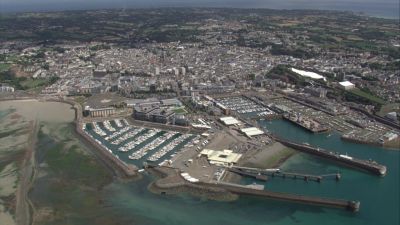EU nationals will require a visa to work, study or live in Jersey from next year

EU nationals will require a visa before arriving in Jersey to work, study or live, in the same way as non-EU nationals currently do from January next year.Any EU nationals arriving in Jersey prior to 31 December will be eligible to apply to the Jersey EU Settlement Scheme, and EU nationals who have already been granted pre-settled or settled status will be able to continue living and working in the island without further permissions.
As a member of the Common Travel Area (CTA), the island is obliged to align its immigration controls to that of the UK and maintain an equally robust immigration system.To that end, there will be two main working visa routes for people requiring immigration permission from 2021 - skilled workers and nine month temporary workers.Skilled workers will have to have a job offer from an island employer and meet the necessary qualification and language requirements. They will also need to meet a salary threshold of the 'going rate' or £30,000, whichever is higher. They will enter on a three year permit which can be renewed and eventually lead the settlement. They will also be able to bring dependents.
Occupations eligible for the skilled work permit employment route include Chief Executives and senior officials, legal professionals, marketing and sales directors, scientists, engineers and IT specialists.
Exceptions apply to the skilled worker jobs and include roles that fall within either an island shortage occupation or are of significant benefit to the island, despite the salary threshold not being met. These roles include chefs, professional rugby players and health care assistants.
Nine month temporary workers will also need a job offer and skills relevant to the specific job. This route is specifically aimed at workers in the agriculture and hospitality sectors, and will not lead to settlement although the permit can be renewed following a three month absence. Temporary workers will not be able to bring their dependents. They will not have to meet a language requirement either.
Six-month contracts in the fishing industry will also be available through the temporary contract route.Employers wishing to employ someone on either of these working visas will require an immigration work permit.Visitors from EU countries will be able to enter for up to six months without a visa, although the use of insecure national identity cards for EU arrivals will be phased out from 1 October 2021. People who have already been granted pre-settled or settled status will be able to travel on identity cards until the end of 2025.The rules do not apply to members of the Common Travel Area, which includes the UK, Ireland and Isle of Man.
The immigration system will operate in conjunction with the proposed new Migration Control Policy, which aims to reduce inward migration. It would remove the graduation mechanism which allows migrants to automatically gain entitled to work and entitled housing status after five and ten years respectively.Instead it is proposed to introduce, nine month, four years and 10 year permissions. Neither the nine month permit or the four year permits will lead to permanent residential status. The 10 year permission may lead to permanent residential status.The lack of guarantees for migrants is of concern to Senator Kristina Moore, Head of the Scrutiny Liaison Committee.
The policy is scheduled for a States debate on 1st December.